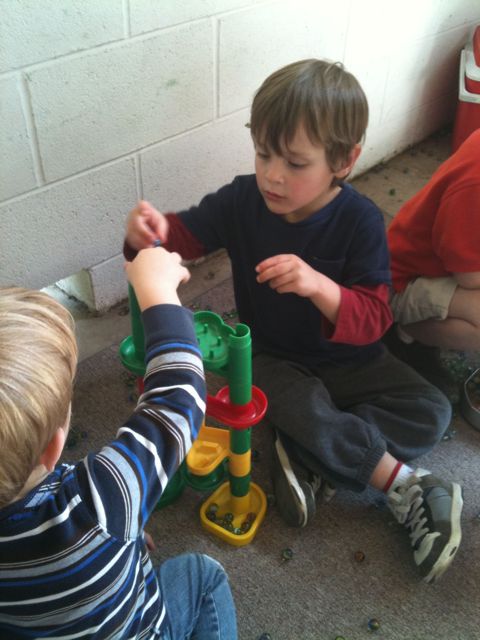All about Sean
Sean is my oldest boy, about to turn four years old. He’s skinny, despite how much cereal or how many fish sticks he consumes. He loves singing. He gets excited over traffic lights and bridges while in the car. He has a nice smile and likes to laugh. He can count to 100 (and higher), spell words, and can recite back almost every book he’s read.
Sean has autism.
While the “formal” declaration of his diagnosis only came within the last week or so, it was pretty clear that Sean was not developing “normally” (for a clinical definition of “normal”). But now we can call it as it is, rather than using terms like “delayed development”. While that term is accurate, it doesn’t carry the social or emotional weight of Autism. People hear developmental delay and think it’s just a term, nothing to be concerned with. People hear autism, and they associate words like “disease” and “condition”, and attribute the same kind of emotional response as other diseases or conditions. Now people will superimpose their empathy on him, and on my wife and I. And here’s where I feel conflicted.
When we were informed of his diagnosis, I did not have a reaction. At least not the kind of reaction I suppose people would get when told this news. Maybe it’s because I’ve already struggled with it, back when the process of determining his delays started. We were informed by his daycare director that Sean had exhibited behavior that warranted further examination by Early Intervention specialists. At the time we did not know what to make of this: Cathy and I just thought, “Well, he’s just shy and quirky. I mean, we’re not exactly the most social and, uh, ‘normal’ people ourselves.” But we sat with the specialists after his assessment, and were bombarded with phrases like “low performing” and “below threshold” and “delays”. It hit me hard. It was a confirmation that he will have these problems, not just now but for his whole life. After that meeting I was upset. For Sean. And for Cathy and myself – that was a bad feeling; selfish even. But it was an honest emotion. Sean’s condition meant that whatever expectations I had for his “normal” childhood are gone. It’s a new reality, and any change in your way of looking at the world will be a blow (and those who know my history know this has happened enough). So being told that Sean is “officially” autistic didn’t impart that kind of strong reaction, simply because we’ve been living it for the past few years. My thought was that it’s like a change of seasons on the calendar: Summer turns to Fall by a date on the calendar, but the weather doesn’t instantly change; you still prepare and deal with and get through whatever is out there. Sean is still going to be treated as he’s been for the last year and more. His activities don’t change, his treatments don’t change, and we continue on as always, despite the label.
Being in Early Intervention has helped both Sean and us immensely. We now have resources to confide in and get help from. Being in his “daycare school” (what we call his EI classes, two mornings a week) has improved his development greatly. We see changes in him all the time, and we get excited when we observe new behaviors (even when they are annoying, like his new-found “bossiness”). Every behavior that indicates an advancement feels like a victory.
The question now is where to go from here. Cathy’s coping mechanism is to study – to learn all she can, to research things she can do or places we can go to for help or greater understanding. For myself, I just want to know how to best serve Sean’s needs: I want to know what I can do to help. I just want to be his dad, not his therapist. I just want to know what I have to add to my “dad toolbox” to make his life as full as possible. The thought makes me anxious. It’s not where I want to be as a parent.
Sean is almost four. He has trouble interacting with his peers in play situations. He has difficulties copying sad or angry faces. He tends to be withdrawn from the other kids and would rather play on his own. He can’t control his flapping hands or stiff limbs when he gets worked up.
Sean has autism.
And his mom and dad love him very much. A label doesn’t change that.

